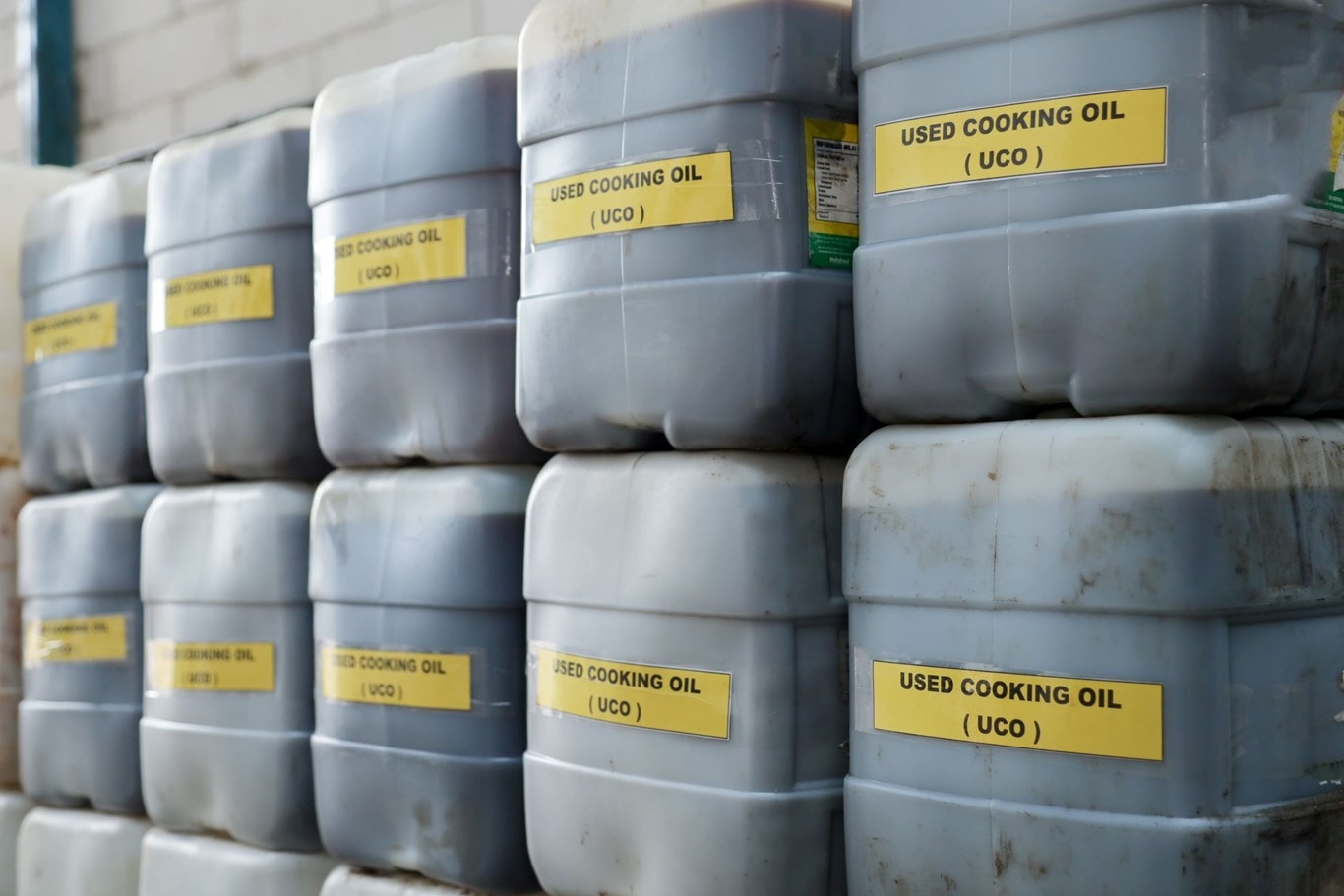Navigating the Seas of Sustainability - FAME Biofuel Blends in Marine Engines
As the shipping industry strives to improve its environmental sustainability and minimise its greenhouse gas emissions, the utilisation of biofuel blends in marine engines has emerged as a promising solution. Ongoing tests are being conducted on fuel blends that incorporate up to 50% Fatty Acid Methyl Ester (FAME) and 100% FAME biofuels.
In response to enquiries from our Members who are conducting their own research on the advantages and disadvantages of using FAME biofuel blends, we have sought guidance from leading experts in the field. Specifically, we reached out to Veritas Petroleum Services (VPS), a globally recognised market leader in marine fuels and testing, to provide comprehensive advice on the use of FAME biofuel blends.
We have been fortunate to receive valuable insights on this topic from Ian Crutchley, an Account Manager, and Jitske de Boer, a Technical Advisor, at VPS. Their expertise and perspectives are as follows:
FAME is derived from the esterification process of fatty acids by converting oils and fats into long-chain mono alkyl esters. Feedstocks can include plant oils, recycled cooking greases or oils, animal fats, or combinations thereof.
The benefits of FAME biofuel blends in marine engines include reduced exhaust emissions, improved lubricity, enhanced ignition properties, and increased cetane number. Due to their compatibility with existing equipment that requires no additional modifications 35-50% FAME blends is an attractive option for ship operators.
It’s important to note though that FAME energy content is lower per metric ton compared with typical petroleum gasoil, i.e., 100% FAME is approximately 12-13% lower on calorific value, while this energy difference decreases as the biofuel component in the blend decreases.
However, several considerations must be considered to ensure optimal performance and mitigate potential issues.

One important factor is the cold properties of biofuel blends. The cloud point of biofuels can be higher than that of conventional diesel, necessitating tank heating in case the temperature drops below the cloud point. Proper storage temperature, typically 2 to 5°C above the cloud point and 10°C above the pour point, should be maintained to prevent issues related to wax appearance and poor flow.
Extended storage of biofuel blends requires special precautions. Although these blends have adequate storage stability for normal use, monitoring quality and taking measures to prevent microbial growth are essential. Microbial contamination can lead to operational problems such as tank corrosion and filter clogging. Regular tank maintenance, such as frequent drainage of settled water, helps minimize the impact of microbial growth.
Compatibility with other materials is another aspect to consider. FAME may cause degradation of certain types of rubber compounds used for hoses and gaskets what will eventually lead to leakages. It can also form sediments when in contact with specific metals such as copper, lead, tin, or zinc. Additionally, some plastics may be permeated by FAME over time, rendering them unsuitable for storing biofuels. Therefore, it is recommended to consult engine and equipment manufacturers regarding material compatibility.
Biofuels can have a cleaning effect, potentially loosening or dissolving varnish and sediments left by conventional fuels in tanks and fuel systems. Prior to bunkering biofuels, it is advisable to clean the tanks and fuel systems where sediments may be present. An initial increase in filter plugging can indicate the cleaning process, with filter change intervals returning to normal over time.
Elevated levels of phosphorus and/or potassium in biofuels may impact emission control systems and should be monitored accordingly.
In terms of usage, marine engines have been successfully using biofuel blends with FAME percentages up to 100%. With the increase in Biofuel consumption in the marine industry VPS experience of biofuels testing and evaluation has grown rapidly. However, most ships tend to bunker biofuels only once in limited volumes, mainly as a proof-of-concept without an immediate intention to switch entirely to biofuels. Exceptions exist, with some vessels consistently using biofuels and reporting minimal issues.
Nonetheless, it is important to acknowledge that biofuels are still in a trial phase, with limited long-term usage and storage data. Additionally, as demand increases, maintaining quality control becomes crucial, as vigilance may decrease, potentially negatively affecting the overall quality of biofuels. VPS has developed a specific biofuel Additional Protection Service (APS) test that ensures comprehensive testing based on the nature of the biofuel blend. ISO 8217 standard is the starting point of any marine fuel and for APS package. Tests for stability, microbial activity, corrosivity, and other key concerns with biofuels are recommended.
To effectively monitor fuel performance and identify any issues that may arise, continuous monitoring of the ship's engine and fuel performance is necessary when using biofuels. While short-term trials primarily focus on fuel integrity and assessing engine behaviour, it is crucial to consider wear over an extended period. Disassembling and inspecting the engine cylinder units can provide valuable insights into the engine's condition when using biofuels in the long term.
The most recent revision of MEPC.1/Circ.795/Rev.7 introduces updates to the utilisation of biofuels under MARPOL Annex VI Regulation 18.3. The application of Regulation 18.3.1 remains unchanged, treating fuel blends with FAME content up to 30% in the same manner as traditional marine fuels derived from petroleum refining. However, fuel blends that exceed 30% FAME content are now subject to the requirements specified in Regulation 18.3.2.
In terms of P&I coverage, Members who are considering either testing biofuel blends or using such fuel for long-term purposes should actively collaborate with their vessels’ engine manufacturers, Classification Societies, and Flag Administrations. This collaboration is crucial to ensure the safe and efficient implementation of biofuels while complying with the current regulations. Furthermore, it is advisable to seek and obtain formal approval from these stakeholders before proceeding with the use of biofuels.

Biofuel blends show promise in improving environmental sustainability and reducing emissions in the shipping industry. The use of Fatty Acid Methyl Ester (FAME) biofuels offers benefits such as reduced exhaust emissions and improved engine performance. However, careful consideration is required to address issues such as cold properties, storage stability, material compatibility, and fuel system cleaning. Continuous monitoring and collaboration with the necessary stakeholders are crucial for safe implementation and compliance with regulations.
Members requiring further guidance should contact the Loss Prevention Department.
